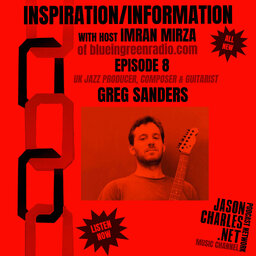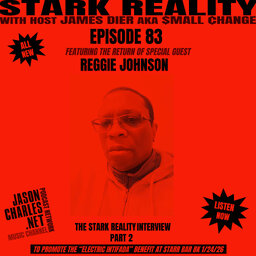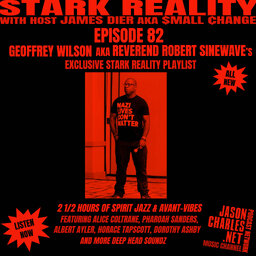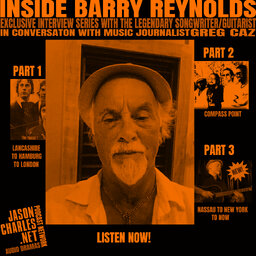INSIDE BARRY REYNOLDS
INSIDE BARRY REYNOLDS features the exclusive interviews series with legendary guitarist, songwriter and Compass Point Allstar BARRY REYNOLDS. BARRY R…On Part 2 of INSIDE BARRY REYNOLDS, the legendary songwriter and rhythm guitarist talks about becoming a member of the Compass Point Allstars with Sly & Robbie, Wally Badarou, Mikey Chung and Sticky Thompson, featuring amazing adventures at the Nassau studio with Joe Cocker, Robert Palmer, Chris Frantz & Tina Weymouth, Jean-Paul Goude, Black Uhuru, Chris Blackwell, Harry Nilsson, Ringo Starr and more! And of course, plenty of inside stories about his long and fruitful writing and recording collaborations with Grace Jones, from where the Compass point era all began…
Throughout INSIDE BARRY REYNOLDS, an in-depth series of conversations with music journalist/DJ musicologist GREG CAZ, Barry reveals his fascinating story from Lancashire to London, Nassau to NYC. A great raconteur and fine gentleman, Barry talks about growing up fast as a talented guitar playing young teenager in and around the blues scene in London and the early Beatles era in Hamburg, to creating the groundbreaking "Broken English" album with Marianne Faithful, and being an integral part of the unique hybrid sound on some of Island Records greatest albums recorded at Chris Blackwell's legendary Compass Point Studios in Nassau, Bahamas from 1979 through the mid-80s. The "Compass Point Allstars," backed an incredible variety of top artists at the time, including Joe Cocker, Black Uhuru, Robert Palmer, and so many more rock and reggae greats. Barry continues to be a musical collaborator with many of the finest international artists working today, an in-demand producer, prolific songwriter, and of course, a rhythm guitar master.
For more information about INSIDE BARRY REYNOLDS, go to the INSIDE BARRY REYNOLDS page on jasoncharles.net Podcast Network’s Audio Dramas Channel
In 1 playlist(s)
JASONCHARLES.NET PODCAST NETWORK
Music and Arts Podcast Network from New York City. 4 Channels : Over 22 original podcast series. D…Social links
Recent clips

INSPIRATION/INFORMATION with Host Imran Mirza Episode 8 Guest UK Jazz Producer/Composer/Guitarist GREG SANDERS
1:16:43

STARK REALITY Episode 83 Guest REGGIE JOHNSON Returns, for "Electric Intifada" Benefit
1:27:17

STARK REALITY PLAYLISTS Episode 82 GEOFFREY WILSON aka REVEREND ROBERT SINEWAVE's Spirit Jazz & Avant Vibes Head Soundz Mix
2:33:58
 JASONCHARLES.NET PODCAST NETWORK
JASONCHARLES.NET PODCAST NETWORK